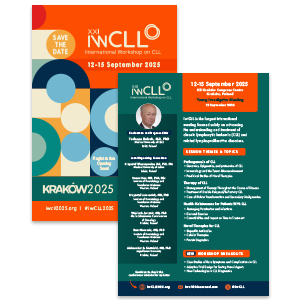- Home

Target Audience
This activity is intended for community and academic medical oncologists, hematologists, advanced practitioners (NP/PA/PharmD), and other clinicians who care for patients with CLL.
Educational Objectives
Upon completion of this activity, participants should be able to:
- (YIM) Evaluate and interpret the clinical significance of emerging preclinical and clinical evidence regarding:
- Factors contributing to the pathogenesis of CLL
- The diagnosis, prognosis, and initial treatment of CLL
- Contributors to disease progression and Richter’s transformation
- Assess the clinical trial results of current and emerging treatment strategies for patients with newly diagnosed CLL
- Evaluate the latest safety and efficacy data of approved and investigational approaches for patients with relapsed/refractory CLL
- Recognize best practices to achieve optimal outcomes among patients with CLL, including treating patients with high-risk disease, minimizing adverse events, and preventing progression of disease
- Review how the genomics, proteomics, and epigenetics of CLL play a role in the pathogenesis of disease
- Discuss optimal approaches to the identification and treatment of patients who develop Richter’s transformation
- Identify unique patient-related and disease-related factors that influence the care of patients with CLL, including vaccination, infection prevention, diet and exercise, and patient comorbidities
- Examine global perspectives and approaches for caring for patients with CLL, including access to care


